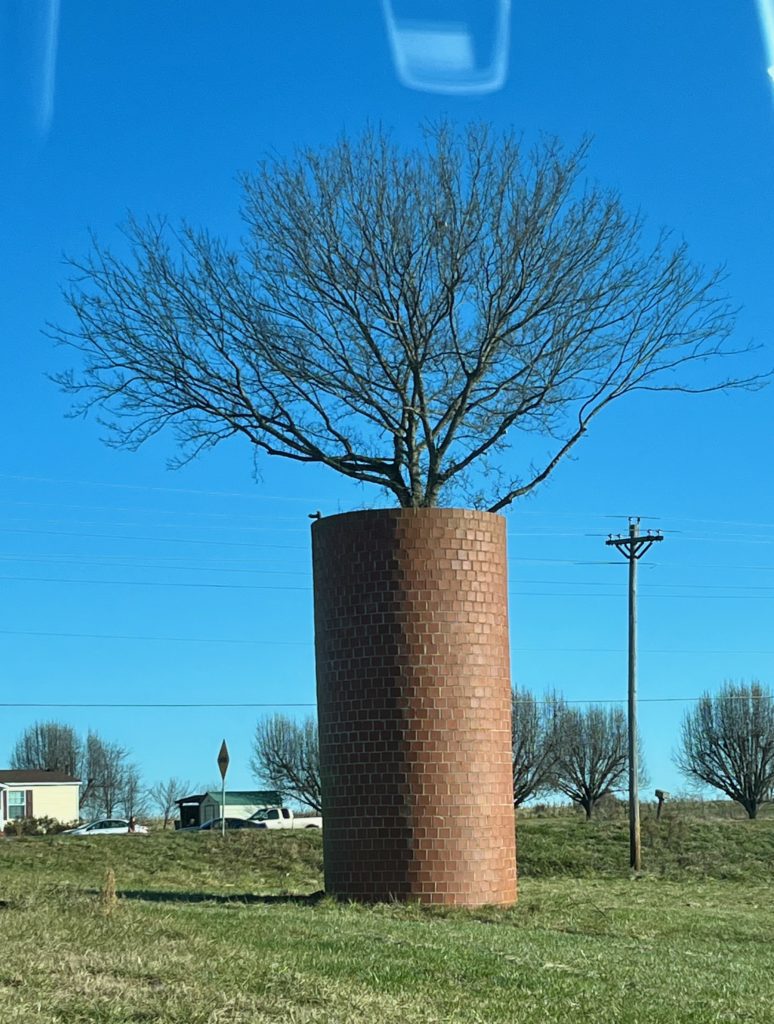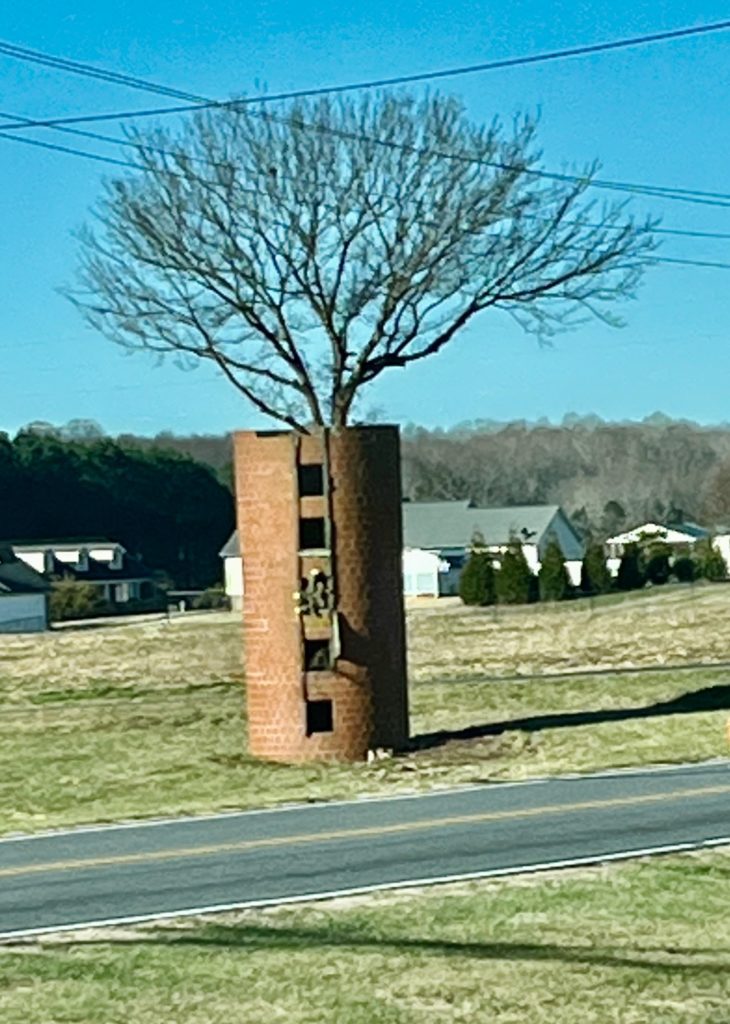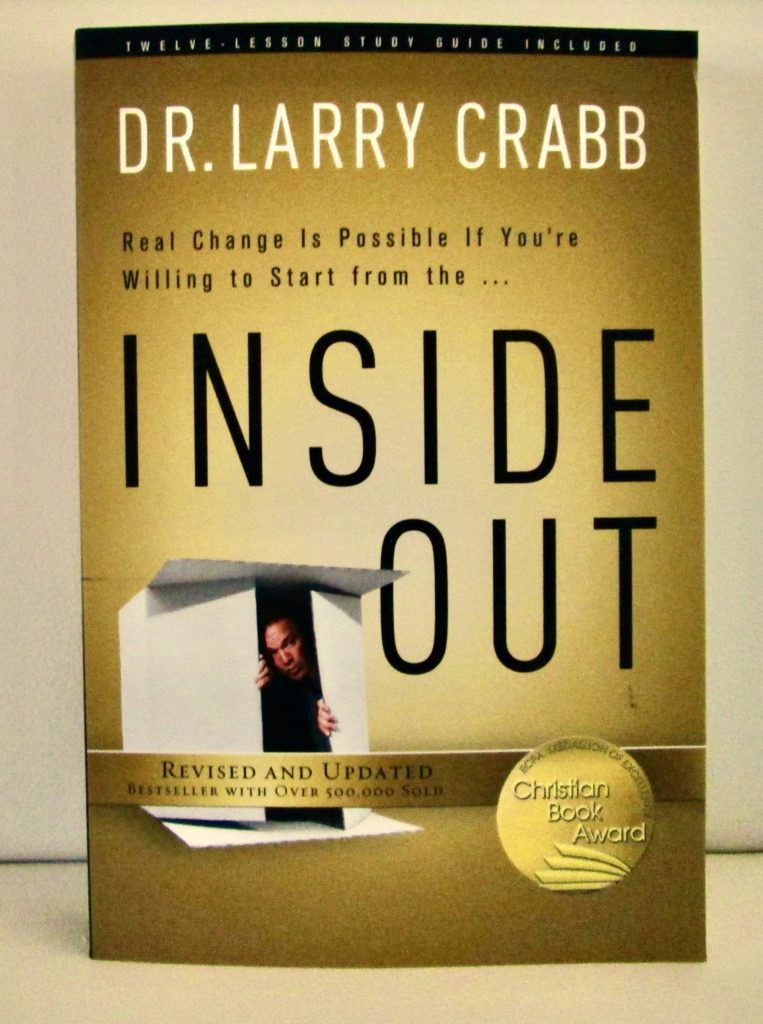


So today, I come to the end of looking at this book, Inside Out, by Dr. Larry Crabb. It is a book of such deep instructions, sometimes wandering on for pages, until I am lost in what it is saying, then, hitting an area that needs deep study to affect the changes within.
I will narrow this last look at the book to what Dr. Crabb calls a “clearer view of sin.” He has divided the problem of sin into two categories:
- visible acts of transgression against clearly written biblical standards
- subtle violations of our Lord’s command to love (p. 139)
He goes on to say, “Christians who sincerely want to grow are preoccupied almost exclusively with sins in the first category, visible transgressions of easily recognized standards.” (p.139)
But in Matthew 23:23 the Lord severely rebuked the Pharisees for being careful to tithe every tiny income, while ignoring, justice, mercy, and faith. Jesus said they should tithe, but not neglect, “the more important things.” They were failing in dealing with the sins of relationship. (see p.140)
Jesus “requires us to look carefully at our approach to relationships to see where self-interest corrupts love.” (p. 140) Dr. Crabb says there is a sin of self-protection “when our legitimate thirst for receiving love creates a demand not to be hurt that overrides a commitment to lovingly involve ourselves with others.” (p.141)
“We were designed by a God who wants us to trust His love enough to freely love others, not protect our longings from further injury. Yet we love so poorly. Why? The answer is as simple as it is profound. We refuse to come to God in our thirst by abandoning our commitment to self-protection….To change from the inside out requires that we repent of our self-protective commitment.” (p.145)
“The mark of maturity is love, and the essence of love is relating without self-protection… people can become moral, thoughtful, disciplined, and dedicated without deeply depending on God. But living without self-protection requires profound trust in Christ.” (p.153)
“…we struggle as victims of other people’s unkindness. We have been sinned against. But we cannot excuse our sinful responses to others on the grounds of their mistreatment of us. We are responsible for what we do. We are both strugglers, and sinners, victims and agents, people who hurt and people who harm.” (p. 156)
“God is unalterably opposed to a demanding attitude on the part of His creatures no matter how severe their suffering…He will not come to a negotiating table to consider terms from angry people. [see Job Chapters 38-42] God opposes the proud who demand but gives grace to the humble who express their hurt.” (p.161)
“The person who concedes that God may not do for him what seems so right is further along in his understanding of God than one who cheerfully expects God to make everything better.” (p.169) “There is no one whose high estimate of himself qualifies him to tell God what to do….Desire much, pray for much, but demand nothing. To trust God means to demand nothing.” (p. 175)
To look deeply within for change God provides three resources for us:
- The Spirit of God
- The Word of God
- The people of God (p.181)
Dr. Crabb says, “Christians have only two options when it comes to forming relationships: either remain comfortably distant from the struggles and sinfulness in one another or open a can of worms.” (p.191) But there are two things to consider in that:
- Remember that honest sharing is not the final goal; love is.
- Good fellowship is characterized by support and kindness, not by confrontation. (p.192)
“Ongoing change takes a lifetime.” (p.205) We must “willfully [choose] to see and own whatever is going on inside us in the moment.” (p. 212) “Every Christian has been given a new heart that is more drawn to God than to anyone or anything else. We will never change from the inside out until the Spirit guides our inside look into the wonder of our new heart.” (p.253)
To release this new life within:
- Surrender to God
- Take an inside look in the safety of loving community [Church]
- Develop the spiritual sensitivity necessary to recognize the promptings of God’s Spirit as He stimulates the godly desires of your new heart. (pp.257-258)
“From the center of our soul, we long to know the power to relate not merely with unselfish motives but also with joyful concern for the well-being of others…. We see with increasing clarity what we would be without Christ — helplessly empty and selfishly broken— but now raised from the death of self-centeredness into the life of joyful change from the inside out, with the desire and ability to love…. Hurt deeply when you are failed by a spouse or child or parent or friend. Hurt more deeply when you fail a spouse or child or parent or friend….Yearn for shalom, for a world where everything is exactly as it should be….Hurt. Groan. Ache. Yearn…. Tastes are available now, and they are good. Look in no direction other than God.” (pp.269-270)
This final look at Inside Out has given me a good view inside my own selfish heart and the love I withhold from others due to the fear of being hurt, taken advantage of, or being treated harshly. Modern counselors advise us to set up boundaries. It seems this book, by Dr. Larry Crabb, advises us to tear those boundaries of self-protection down and place our trust in God for his help to love in every situation.
There is a lot to contemplate and with a New Year approaching, it is a good time to look within and assess areas we want to work on in 2022.
What changes do you want to make this year, from the inside out?

Wow! That’s a lot to process. It sounds like this book is the best therapy sessions anyone could ask for.
For the new year, I want to focus on doing the things I always want to do but never actually accomplish because I get distracted or derailed by fear. Still working on my word for 2022. 🙂
Great post today. I love it when a book really shakes up my beliefs and makes me really examine myself. Sounds like this one was a game changer for you.
Allison, that’s a great thing to work on in 2022… completing the things you set out to accomplish. We all need to work on that. And, yeah, I don’t have my word for 2022 yet either. Those are hard to decide on because they can create such a good impact. This book definitely shakes up previous beliefs for sure. But then, isn’t that what God does to us all the time anyway with… “For my thoughts are not your thoughts, neither are your ways My ways, declares the Lord.” Isaiah 55:8
Thanks for such an in-depth analysis. Appreciate the reminders – especially that love needs to be the motivation and goal.
Joni, You put it best…that “love needs to be the motivation and goal.” The hardest time to practice love is when people aren’t very loving, and yet, that’s when God wants us to practice it the most.